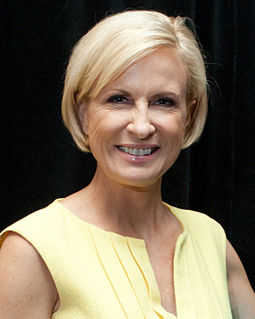A Quote by Mary Pilon
Women in finance bore the brunt of layoffs more than their male counterparts during the Great Recession in 2008 and were also more likely to have been in back office jobs that were replaced by computers.
Related Quotes
Throughout the Great Recession of 2008, the average 401(k) balance lost anywhere from 25 to 40 percent of value. Nobody was more harmed than baby boomers or recent retirees, who, unlike younger workers, didn't have the time for the market to rebound or were no longer contributing and therefore unable to invest when stocks were cheap.
Women are far more likely to follow orders to evacuate, especially women with children. At the same time, women were much more likely to die during the South Asian tsunami. In some villages it was 3 to 1. And that was party because of the average strength it takes to hold onto something. Also it was cultural; women were less likely to know how to swim, as were children. So much of this is based on how we develop our own survival skills before something goes wrong: Even if nothing goes wrong, it might be good to know how to swim.
For the other end of the spectrum, the 50 to 85 percent of the world's population who are not the recipients of privilege, the world they know is almost certainly worse than any their earlier counterparts knew. It is likely they are worse off materially, despite the technological changes. In substantive as opposed to formal terms, they are more, not less, subject to arbitrary constraints, since the central mechanisms are more pervasive and more efficient. And they bear the brunt of the various kinds of psychic malaise, as well as of the destructiveness of civil wars.
My parents were both first-generation Irish Catholics raised in Brooklyn. But it was more for me - it was that women of that generation were even less likely to express themselves, more likely to have that active interior life that they didn't dare speak out. So I was interesting in women of that era. I was interested in the language of that era. There's so much. And, certainly, this is cultural, so much there wasn't spoken about.
People were actually 6 times more likely to buy a jar of jam if they had encountered 6 than if they encountered 24, so what we learned from this study was that while people were more attracted to having more options, that's what sort of got them in the door or got them to think about jam, when it came to choosing time they were actually less likely to make a choice if they had more to choose from than if they had fewer to choose from.
We have an almost desperate need for more women to run for office and for more women to really gut it out after they have kids and stay in their jobs and get to high positions in companies. We need women at the top more than ever. We need women's voices there because they are very different than men's voices and they bring a very valuable and necessary point of view to the table.































